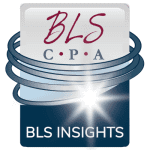
The Tax Cuts and Jobs Act (TCJA) has altered the tax landscape for a lot of individuals and businesses. The changes are extensive and we wanted to provide a high-level overview of some of the features to keep you informed.
____________________________________________________
BUSINESS UPDATES
New corporate tax rate
- The prior-law graduated tax rate structure has been consolidated into one 21% flat rate.
- The separate rate for personal service corporations of 35% has been repealed.
- These changes are effective for tax years beginning after December 31, 2017.
- For fiscal-year corporations, the calculation of tax will be determined using a blended rate based on the number of months at the old rate and the new rate structure.
Alternative minimum tax (AMT) repeal
- The corporate AMT has been repealed by the TCJA, for years beginning after 2017.
Bonus depreciation and Section 179 expensing of fixed assets
- The annual bonus depreciation percentage has been increased to 100% until 2023.
- In 2023, the bonus depreciation percentage will decrease by 20% until it reaches zero after 2026.
- The annual Section 179 expense limit is $1 million of allowable expensing with a total purchase threshold of $2.5 million. If you purchase more than $2.5 million in eligible fixed assets during the taxable year, the expense limit will be reduced.
Net operating losses (NOLs)
- The TCJA repealed the ability to carry back a NOL and claim a refund, effective for tax years starting after December 31, 2017. In addition, the NOL can only offset 80% of taxable income.
Interest expense deductibility
- TCJA introduced a limit on the deductibility of business interest to 30% of taxable income. However, this limitation does not apply to most taxpayers with average gross receipts of $25 million or less.
Entertainment expenses
- The TCJA repealed the deduction for business entertainment, including expenditures such as taking clients to sporting events and shows and paying for season tickets for various entertainment events. No change was made to the 50% of business meal deduction.
- The TCJA increased unrelated business taxable income for tax-exempt organizations by certain disallowed fringe benefit expenses including entertainment expenses, qualified transportation fringe benefits, and some on-premise athletic facilities.
Like-kind exchange restrictions
- The TCJA restricts a like-kind exchange to real property (e.g., buildings and land).
Credit for paid family and medical leave
- A new credit was created under the TCJA for employers who provide eligible employees paid family and medical leave.
_____________________________________________________
INDIVIDUAL UPDATES
Changes in tax rates
- The tax rates are generally lower, with the highest rate being reduced from 39.6% to 37%.
- The rates applicable to net capital gains and qualified dividends are not changing.
Increased standard deduction
- The new standard deductions, effective through December 31, 2025, are:
- Heads of household: $18,000
- Married filing jointly: $24,000
- All other taxpayers: $12,000
Elimination of personal and dependent exemptions
- Through December 2025, the TCJA has eliminated exemptions that taxpayers used to receive for themselves, their spouses, and each of their eligible dependents claimed on their tax return.
Child and family tax credit
- The TCJA increased the child credit for children under the age of 17 to $2,000
- The TCJA introduced a new $500 credit for a taxpayer’s dependents who are not their qualifying children.
- The phase-out limits for these credits have increased to $400,000 for joint filers and $200,000 for other filers.
Changes to itemized deductions (The following changes (except as noted) are in effect from January 1, 2018 through December 31, 2025.)
- The overall phase-out of itemized deductions has been repealed.
- Mortgage interest on new loans used to acquire a principal residence and a second home is only deductible on a debt up to $750,000 (down from $1 million).
- Interest on home equity indebtedness (such as a home equity line of credit) is no longer deductible unless the debt is original acquisition indebtedness or home improvement debt (overall limit of $750,000 still applies).
- Cash donations to public charities are now deductible up to 60% of adjusted gross income.
- Donations to colleges and universities for ticket or seat rights at sporting events are no longer deductible.
- Miscellaneous itemized deductions, such as investment management fees, tax preparation fees, unreimbursed employee business expenses and safe deposit box rental fees are no longer deductible.
- Medical expenses are deductible by the amount the expenses exceed 7.5% of adjusted gross income for 2018 (limit changes to 10% starting in 2019).
- The deduction for state and local taxes is limited to a total of $10,000 ($5,000 for those using the filing status of married filing separately). Example: If you paid $15,000 in state taxes and $6,000 in real estate taxes, for a total of $21,000, you would not be able to deduct the $11,000 that exceeds the deduction threshold.
New deduction for qualified business income (QBI)
- Effective for tax years 2018 through 2025, individuals can deduct 20% of QBI from a partnership, S corporation, or sole proprietorship, as well as 20% of qualified real estate investment trust (REIT) dividends, qualified cooperative dividends, and qualified publicly traded partnership income.
- Note: This deduction will reduce taxable income, but not adjusted gross income, and is available regardless of whether you itemize your deductions. There are many limitations and restrictions to this provision.
Section 529 plans
- The TCJA expanded the opportunities available for education planning by permitting $10,000 per year to be distributed from Section 529 plans to pay for private elementary and secondary tuition.
Alimony
- Under prior law, individuals who paid alimony to an ex-spouse received a deduction for the alimony paid, while the individuals receiving the alimony treated those payments as income. The TCJA has eliminated the deduction for alimony paid and the recognition of income for alimony received, effective for divorce decrees executed after December 31, 2018.
Estate and gift tax exemptions
- Under the TCJA, the estate and gift tax exemption has doubled to almost $11.2 million per person effective January 1, 2018. There is still guidance necessary to reconcile gifts made and estates that occurred prior to the increased exemption and the impact on portability.
Individual shared responsibility payment
- The TCJA repealed the individual shared responsibility payment for failure to have minimal essential healthcare coverage, effective January 1, 2019. If you don’t have minimal essential healthcare coverage in the 2018 calendar year, you will still be subject to the penalty if you do not meet one of the exceptions from coverage.
Please keep in mind that we have described only some of the changes that should be considered related to the new tax law. We recommend talking with your BLS Team Member now to determine how the law may affect you. Please do not hesitate to call us at 302.225.0600.
Best Regards,
Belfint, Lyons & Shuman, CPAs
www.belfint.com
info@belfint.com
